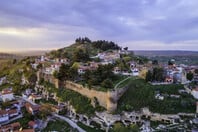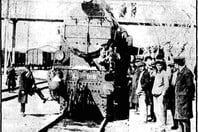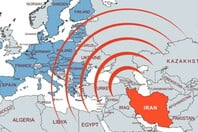Από το OED:huzzaalso huzzah, 1570s, originally a sailor's shout of exaltation, encouragement, or applause. Perhaps originally a hoisting cry. As a verb from 1680s.https://www.etymonline.com/word/huzza+hurrah (interj.)1680s, apparently an alteration of huzza; it is similar to shouts recorded in German, Danish, and Swedish; perhaps it was picked up by the English soldiery during the Thirty Years' War. Hurra was said to be the battle-cry of Prussian soldiers during the War of Liberation (1812-13), "and has since been a favourite cry of soldiers and sailors, and of exultation" [OED]. Hooray is its popular form and is almost as old. Also hurray (1780); hurroo (1824); hoorah (1798).https://www.etymonline.com/word/hurrah---Από MW:First Known Use of huzzah1573https://www.merriam-webster.com/dictionary/huzzah---Απ' τη wiki:Αναμεταξύ άλλων:Anthropologist Jack Weatherford asserts that it comes from the Mongolian Hurree; used by Mongol armies, and spread throughout the world during the Mongol Empire of the 13th century,[3] but he does not appear to present any supporting evidence. Weatherford says that in Mongolian Hurree is a sacred praise much like amen or hallelujah.(...)According to French Turkologue and specialist in Islamic culture Jean Paul Roux, the word 'Hurrah' comes from Old Turkic, in use until medieval times. In his book, History of Turks he states...For example, while attacking to their enemies, they (Turks) used to shout 'Ur Ah!' which means 'Come on, hit!' (in modern Turkish vur hadi!) Then this exclamation turned into 'Hurrah!' in [the] West...https://en.m.wikipedia.org/wiki/Huzzah---Και αν χάνεται η προέλευση της λέξεως στο κάπου, στο κάπως και στο κάποτε, ο Αθηνώδορος Προύσαλης, εκ της Πόλεως, γνωρίζει -στην ουσία- καλύτερα (βλ. 2:30 https://youtu.be/nvmcG0s7xPk).
























